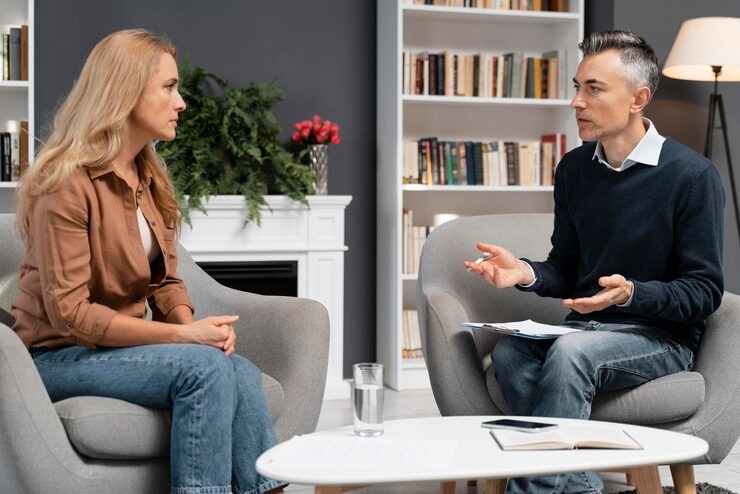
Introduction:
A stroke can change life in unexpected ways, and one of the most common challenges survivors face is difficulty with speech and language. Whether it’s aphasia, dysarthria, or apraxia, these communication changes can impact confidence, relationships, and independence. The encouraging news is that many stroke survivors significantly improve their speech with the right therapy, practice, and support.
This guide walks you through the most effective approaches for speech recovery after a stroke—including therapy options, daily exercises, lifestyle strategies, and helpful resources. Whether you are a survivor or a caregiver, this article will help you understand the path toward clearer communication.
Understanding Speech Problems After Stroke
Why Stroke Affects Speech
A stroke can damage areas of the brain responsible for language, muscle coordination, and communication. When this happens, survivors may experience:
Aphasia – Difficulty understanding or expressing language
Dysarthria – Slurred or unclear speech caused by weak muscles
Apraxia of Speech – Difficulty coordinating the physical movements needed for speaking
These conditions vary from person to person, but all can benefit from targeted speech therapy.
Signs You May Need Speech Therapy After Stroke
You or your loved one may benefit from speech therapy if you notice:
Trouble finding the right words
Difficulty forming complete sentences
Slow or slurred speech
Challenges following conversations
Frustration during communication
Early treatment can make a meaningful difference.
Benefits of Speech Therapy for Stroke Survivors
Restoring Communication Skills
Speech therapy helps retrain the brain, rebuild language pathways, and strengthen motor coordination for clearer speech.
Boosting Confidence
As communication improves, survivors often feel more comfortable speaking with family, friends, and community members.
Improving Social Interaction
Easier, clearer conversations reduce isolation and support emotional healing.
Supporting Cognitive Recovery
Speech, memory, and thinking skills are deeply connected—so therapy often improves overall cognitive health.
Types of Speech Therapy for Stroke Survivors
1. Traditional Speech & Language Therapy
A licensed speech-language pathologist (SLP) works on speech clarity, word retrieval, comprehension, and effective communication strategies.
2. Constraint-Induced Language Therapy (CILT)
This approach emphasizes speaking aloud rather than using gestures or writing, helping strengthen verbal communication skills.
3. Melodic Intonation Therapy (MIT)
By using rhythm and melody, this method helps individuals who struggle to speak but can still sing words or phrases.
4. Group Therapy
Group settings offer encouragement, social practice, and real-life conversation opportunities.
5. Telepractice / Online Speech Therapy
Online sessions with certified SLPs are excellent for those who want professional support from home.
At-Home Speech Exercises for Stroke Recovery
Professional therapy works best when paired with daily at-home practice. Here are effective exercises to try:
Breathing & Voice Exercises
Deep breathing paired with long vowel sounds
Gentle humming or singing to strengthen breath support
Word & Sentence Practice
- Naming everyday objects around the home
Repeating short sentences with careful articulation
Reading & Writing Practice
- Reading aloud for a few minutes each day
Writing in a journal to support language processing
Technology-Based Tools
Speech therapy apps designed for stroke recovery
Voice recognition tools for practice and motivation
Lifestyle and Supportive Strategies
Stay Patient and Consistent
Recovery is a gradual process. Even 10–15 minutes of practice each day can lead to progress.
Use Alternative Communication Methods
Gestures, drawing, or communication apps can help bridge the gap as speech improves.
Stay Socially Engaged
Speaking with loved ones or joining support groups helps reduce frustration and build confidence.
Maintain a Brain-Healthy Lifestyle
Nutritious meals, movement, hydration, and rest all support brain healing.
The Role of Family and Caregivers in Speech Recovery
Family support is incredibly important. Caregivers can:
Encourage daily conversation
Practice exercises alongside the survivor
Offer patience and avoid finishing sentences
Celebrate small but meaningful steps
Join therapy sessions to learn supportive techniques
Together, these actions create a strong foundation for communication success.
Advanced Treatments & Modern Technology
Electrical Stimulation Therapy
Some clinicians use gentle electrical stimulation to activate the muscles involved in speech production.
Virtual Reality (VR) & AI Tools
VR-based programs simulate real-life communication scenarios, making practice engaging and realistic.
Medications
In certain cases, doctors may recommend medications that support brain recovery in combination with speech therapy.
Common Challenges in Post-Stroke Speech Recovery
Many survivors experience:
Emotional frustration
Plateaus in progress
Limited access to therapy due to cost or mobility
Even when recovery feels slow, persistence, flexibility, and consistent support can lead to meaningful improvements.
FAQs: Help With Speech After Stroke
1. When should speech therapy start after a stroke?
Ideally, as soon as possible—often within days or weeks. Early intervention leads to stronger outcomes.
2. How long does speech recovery take?
It varies. Some improve in weeks, while others need months or years. Consistency is the key factor.
3. Is online speech therapy effective?
Yes. Teletherapy with qualified SLPs is proven effective and allows survivors to receive support from home.
4. How successful is speech therapy after stroke?
Many survivors experience significant improvement in clarity, confidence, and communication—even if full recovery varies.
5. Can family help with exercises?
Absolutely. Family involvement often speeds up progress and increases motivation.
Internal & External Resources
- American Stroke Association – Education and recovery support
Speech therapy apps for stroke survivors
Guides on communication confidence, fluency, and recovery techniques
Final Thoughts: Taking the First Step Toward Speech Recovery
Speech challenges after a stroke can feel overwhelming, but recovery is absolutely possible. With the right combination of professional therapy, at-home exercises, and strong support, survivors can rebuild communication skills and regain independence.
If you or someone you care about is struggling to speak after a stroke, don’t wait. Early action creates the strongest foundation for recovery.
Call to Action
Are you ready to take the next step toward clearer communication?
👉 Book a free consultation today with our compassionate, experienced speech-language pathologists.
We offer supportive, effective therapy both online and in-person—designed around your unique needs and goals.
Start your speech recovery journey with confidence.


